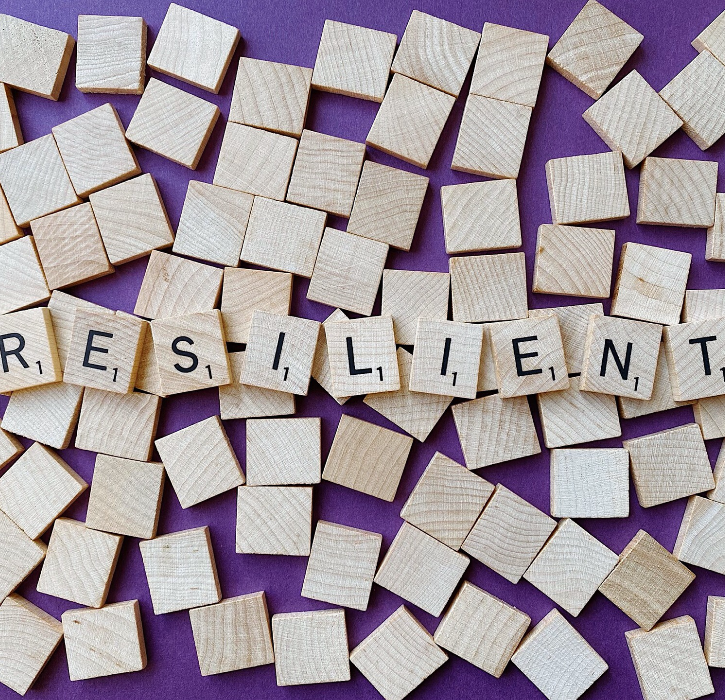Is Larissa resilient? (And does she have ADHD?)
Larissa has a writing assignment–2-3 pages–due by the end of today. She understands the topic and knows what she wants to say, so she opens her notebook, picks up her pen, and
I can’t work without music.
Larissa picks up her phone, checks her DMs, then scrolls through her playlists and favorite artists on Spotify. She puts India Arie on shuffle and sits back down. She smooths the paper, clicks her pen, and…
What is that outside?
Larissa gets up, stares out the window. Nothing there. She decides to check all the other windows, just to be sure. Still nothing. She’s ready now…
Is it just me or is it cold in here?
Larissa gets back up, finds a sweater, adjusts the thermostat, and sits back down. She has to get this done! And yet…she heads for the kitchen instead.
Some of you are probably ready to shake Larissa right about now. You might even want to yell at her. Just sit down and do it already! What on earth is wrong with you?! Others probably want to solve her problems–fix a snack, turn up the heat, close the curtains so she’s not distracted. Still others might think she needs to be tested for ADHD. And of course some will write her off–she’s lazy… procrastinates… not cut out for school… does not have what it takes. Based on what they see, Larissa sure doesn’t look resilient.
Spoiler alert
I’m Larissa. Make that Laura. I am a middle-aged woman who earned a PhD before the age of 30. I have been running an academic department for 5 years and this blog for 2 or 3. Yes, I have a lot of issues… including, admittedly, procrastination. Laziness and ADHD, however, are not among them.
What’s “wrong with me” is today. It’s November 3, 2020–Election Day, if you haven’t heard–and I feel like I might crawl right out of my skin. No one knows what’s going to happen. We learned four years ago that polls can’t keep nightmares away. Even if we avoid a repeat of 2016, the twin pandemics of Covid and racism will still be running amok throughout the land. Not to mention that either way, millions of people are going to be disappointed, angry, sad, and scared.
So I know what’s happening to Larissa me. She’s…I’m…We’re freaked out. The past four years have traumatized my family and we know we’re not alone. Still, the writing will get done–you’re reading this, after all. I just have to put one word then another. When panic threatens, which is often, I breathe deeply, press my feet into the floor, call to mind the wisdom I’ve found in Pema Chödrön, Parker Palmer, Richard Rohr, and Valarie Kaur. Whatever comes, I’ll face it, knowing that no matter what happens tonight, I have the tools that I need.
How to become resilient
This blog post is happening because I’ve learned how to be resilient. Contrary to popular belief, this does not mean that I have some extra dose of determination, grit, or will. It means, as I suggested above, that I have the tools I need. I know who I can count on. I know what I need to feel safe and–usually–how to cope when I do not. On a good day, I can catch myself going off the rails and do what it takes to get back on.
For many, however, including hundreds just a few miles from me, this is not the case. Kentucky’s residents have higher ACE (Adverse Childhood Experiences) scores than 88% of Americans, with 27% of our children having experienced at least one ACE. We are second in the nation for the number of children with one or more caregivers behind bars. Resources are so scarce that most local school districts are listed as being 100% free or reduced lunch.
What can we do?
Recently, groups have started forming to work for lasting change. One such organization is The Bounce Coalition, formed in 2014 in Louisville and now spreading throughout the state, including here to Whitley County. Their mission is to (re)build communities by educating the public, training service providers, strengthening networks, and advocating for trauma-informed policies. By working across systems to include public health, law enforcement, school districts, mental health professionals, and more, they help children, caregivers, and service providers alike become more resilient.
Programs like Bounce have a well-documented record of decreasing domestic violence, substance abuse, suicide, and violent crime and improving outcomes in both mental and physical health. It may sound too good to be true, and yet, as we at the Attachment & Trauma Network (ATN) know, the numbers are there. Better still, you actually can see the light return to children’s eyes–just watch the documentary Resilience: The Biology of Stress & the Science of Hope if you don’t believe me. That alone is reason enough to try.
No one knows what will happen tonight or tomorrow, much less next week or year. I do know that no matter what, I for one will keep looking for ways to help kids in need. Bounce, and of course ATN are wonderful places to start.



